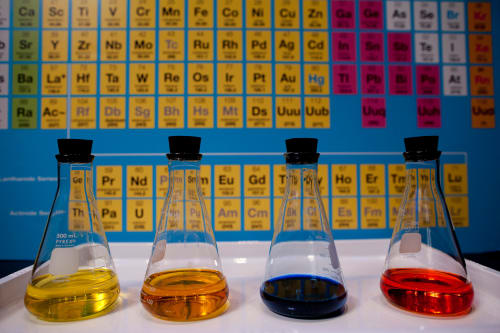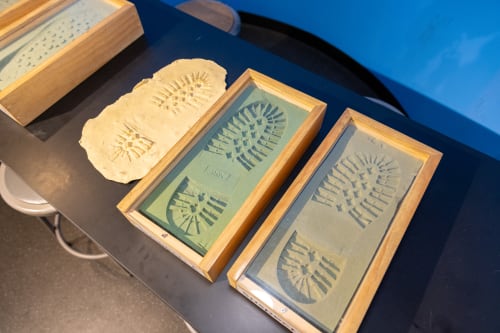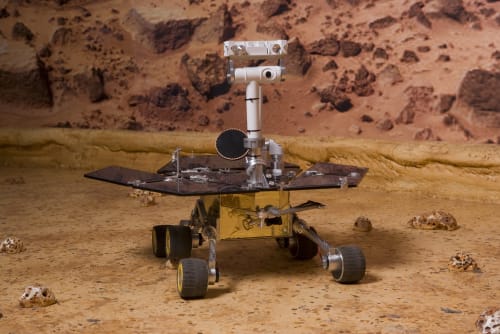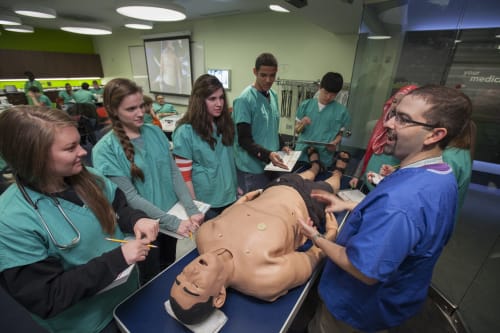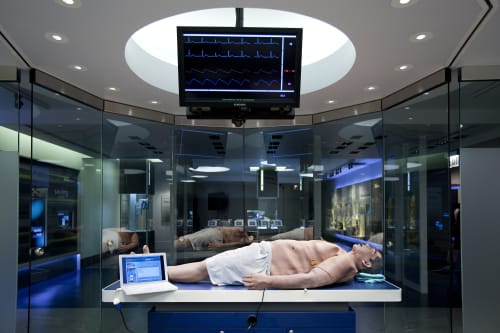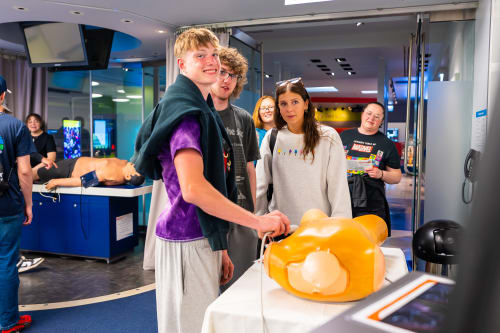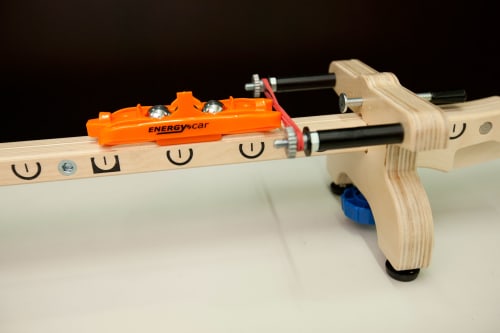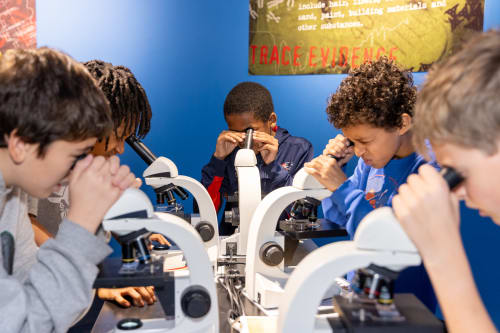Students will make observations and actively participate in hands-on chemistry experiments that produce visible evidence of chemical reactions.
Colorful Chemistry:
For Grades 4-8
- Location: Griffin Museum of Science and Industry
- Capacity: 30 students
- Duration: 45 minutes
- Cost: $240
- Offered Tuesday and Thursday at 10:15 and 11:45 a.m.
- This lab can be done concurrently. We can accommodate up to four groups per day (depending on availability).
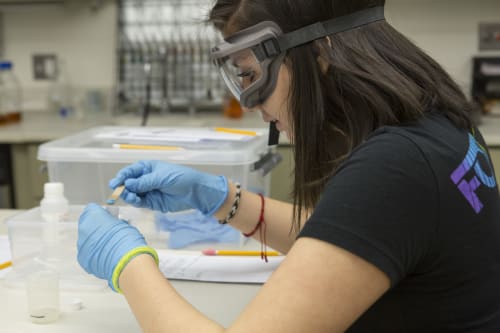
Lab goals
During every session we aim to have students reach understanding and have fun along the way!
Student outcomes
- Increase their understanding of chemical reactions.
- Understand the connection between ideas explored and careers that involve chemistry.
- Actively engage in hands-on and inquiry-based science investigation.
- Share Learning Lab-generated thoughts/ideas/questions with peers and program facilitators.
- Observe chemical properties before and after a chemical reaction.
- Develop and test a hypothesis about what will occur during a chemical reaction.
Classroom connections
All of our Learning Labs are designed to integrate curriculum standards and connections into your classroom!
Skyline Scope & Sequence
- 4th: Energy Conversions
- 5th: Modeling Matter
- 6th: Metabolism
- 7th: Chemical Reactions; Matter & Energy in Ecosystems
- 8th: Light Waves
Common Core ELA/Literacy Standards
- CCSS.ELA-LITERACY.RI.3.1, 3.3, 3.7, 3.10 2, 5.4, 5.7, 5.10
- CCSS.ELA-LITERACY.RI.4.1, 4.2, 4.3, 4.4, 4.7, 4.10
- CCSS.ELA-LITERACY.RI.5.1, 5.
Next Generation Science Standards
Science and Engineering Practices:
- Asking questions and defining problems
- Developing and using models
- Planning and carrying out investigations
- Analyzing and interpreting data
- Constructing explanations
- Engaging in argument from evidence
- Obtaining, evaluating and communicating information
Crosscutting Concepts
- Patterns
- Cause and effect
- Systems and system models
- Energy and matter
- Stability and change
Disciplinary Core Ideas
- PS 1: Matter and its interactions
- PS1.A: Structure and Properties of Matter
- PS1.B: Chemical Reactions
- PS 3: Energy
- PS3.B: Conservation of Energy and Energy Transfer
- PS3.D: Energy in Chemical Processes and Everyday Life
- ETS 2: Links among engineering, technology, science and society
